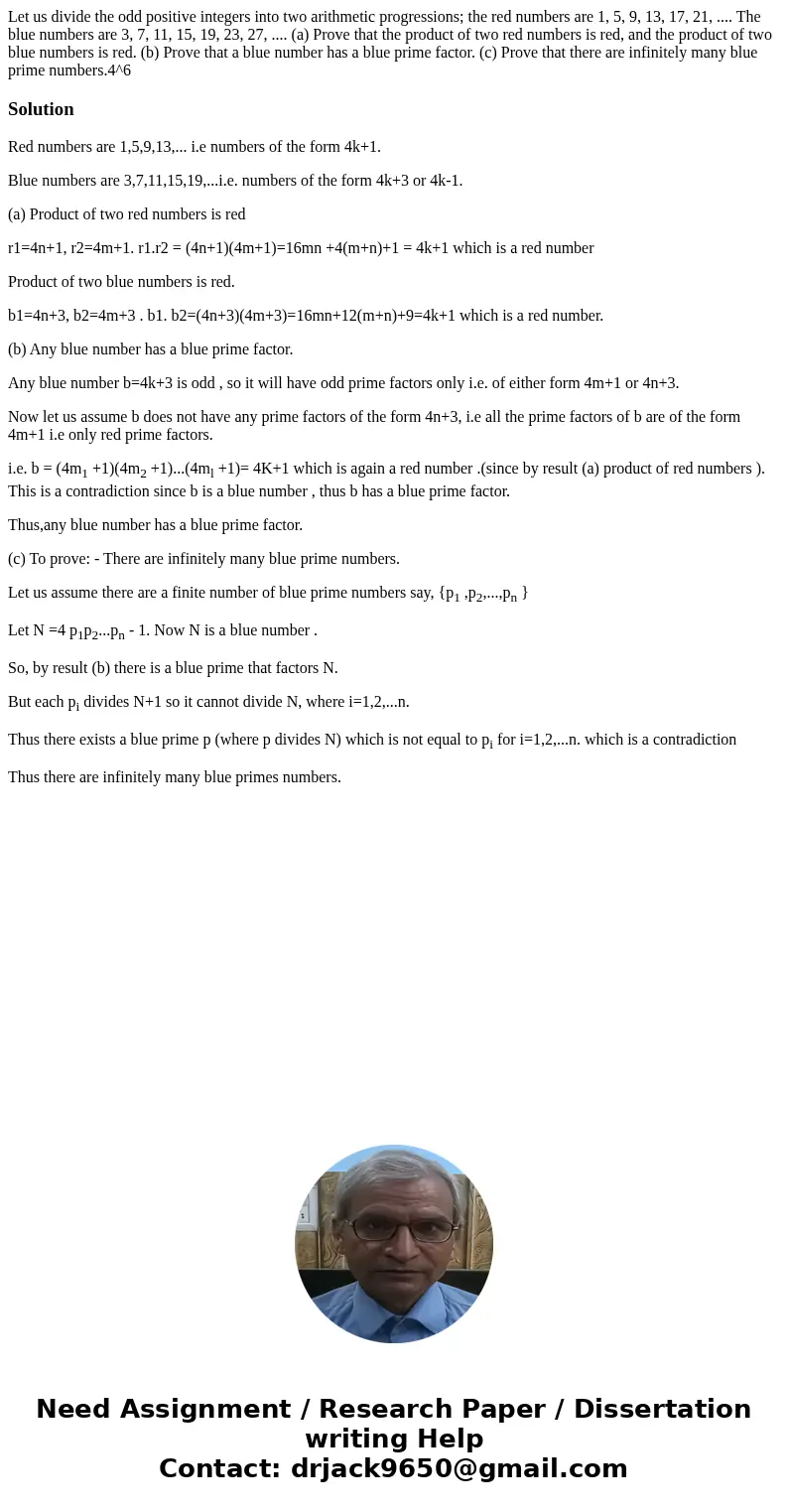Let us divide the odd positive integers into two arithmetic
Solution
Red numbers are 1,5,9,13,... i.e numbers of the form 4k+1.
Blue numbers are 3,7,11,15,19,...i.e. numbers of the form 4k+3 or 4k-1.
(a) Product of two red numbers is red
r1=4n+1, r2=4m+1. r1.r2 = (4n+1)(4m+1)=16mn +4(m+n)+1 = 4k+1 which is a red number
Product of two blue numbers is red.
b1=4n+3, b2=4m+3 . b1. b2=(4n+3)(4m+3)=16mn+12(m+n)+9=4k+1 which is a red number.
(b) Any blue number has a blue prime factor.
Any blue number b=4k+3 is odd , so it will have odd prime factors only i.e. of either form 4m+1 or 4n+3.
Now let us assume b does not have any prime factors of the form 4n+3, i.e all the prime factors of b are of the form 4m+1 i.e only red prime factors.
i.e. b = (4m1 +1)(4m2 +1)...(4ml +1)= 4K+1 which is again a red number .(since by result (a) product of red numbers ). This is a contradiction since b is a blue number , thus b has a blue prime factor.
Thus,any blue number has a blue prime factor.
(c) To prove: - There are infinitely many blue prime numbers.
Let us assume there are a finite number of blue prime numbers say, {p1 ,p2,...,pn }
Let N =4 p1p2...pn - 1. Now N is a blue number .
So, by result (b) there is a blue prime that factors N.
But each pi divides N+1 so it cannot divide N, where i=1,2,...n.
Thus there exists a blue prime p (where p divides N) which is not equal to pi for i=1,2,...n. which is a contradiction
Thus there are infinitely many blue primes numbers.

 Homework Sourse
Homework Sourse